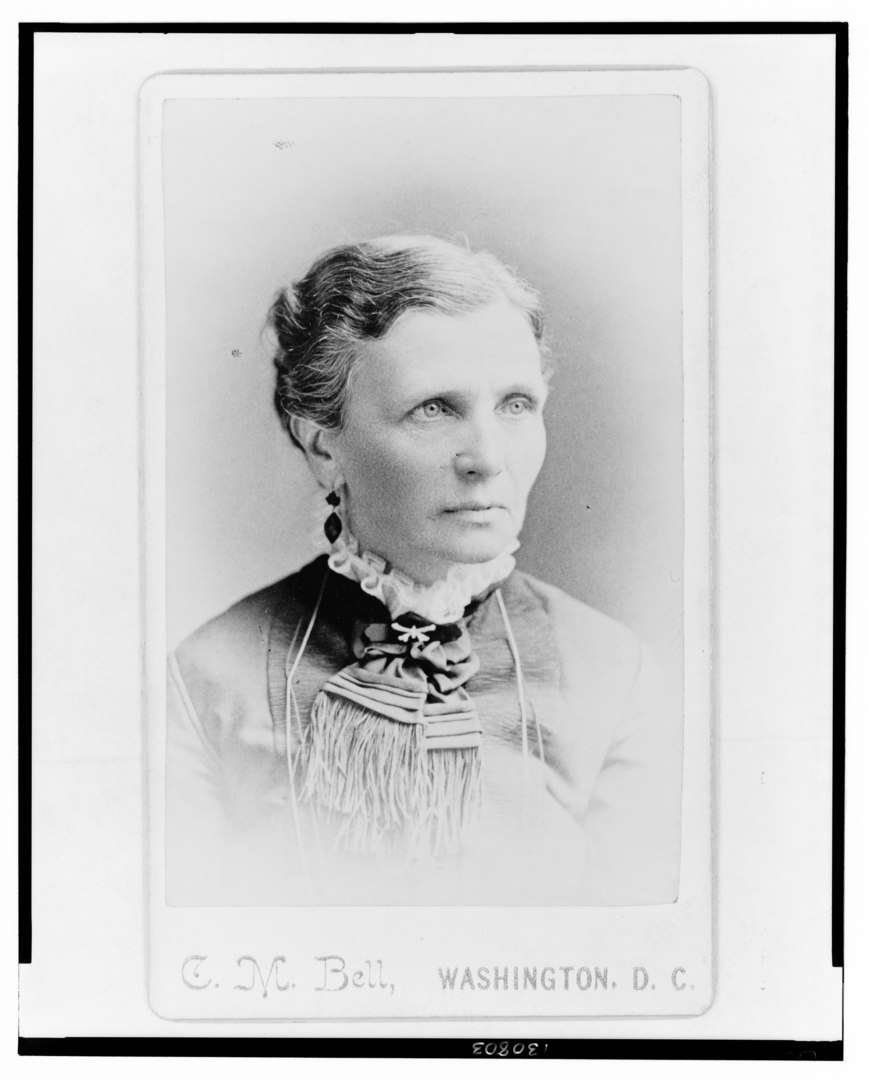Abigail Scott Duniway
(1834-1915) Illinois
Abigail Scott Duniway was a writer, editor, and lecturer. She was born in Illinois in 1834 and was the third of twelve children. When she was 17 years old, her father decided to take the family to the northwest along the Oregon Trail. Abigail was directed to keep a diary of the trip for the family, she wrote about the entirety of their 2,400-mile journey. Sadly, her mother and youngest brother both passed away before reaching the family's destination in Eola, Oregon.
In 1853, one year after arriving in Oregon, Abigail married Benjamin C. Duniway, the new couple settled down in Clackamas County. In 1859, Abigail published her first novel which was the first published novel in the northwest. It was called "Captain Gray’s Company", it told a tale of crossing the plains to the northwest.
In a startling string of events, the Duniways lost their farms, and shortly after Benjamin was in a serious accident involving a runaway team. All of this placed the responsibility to provide for their family on Abigail’s shoulders. They moved from Lafayette to Albany, and Abigail took on teaching, took in boarders, and opened up a millinery shop to support the family. In 1871, Benjamin got a job for the U.S. Customs Service leading the family to move to Portland. It was here that Abigail got involved with a women’s rights group, which later turned into the Oregon State Women Suffrage Association, of which Abigail would later become president.
While in Portland, Abigail started a paper called The New Northwest. Her husband aided with business matters and her older children helped to run the press. The paper was published weekly for 16 years with Abigail as editor. The paper dealt with women’s issues, including suffrage, but it was also a stand for liberty in a broader sense. The motto of the paper was “Free Speech, Free Press, Free People.” In it, Abigail didn’t just talk about women but also the treatment of the Chinese and the Native Americans.
Abigail traveled throughout the northwest, speaking on women’s suffrage. She played a significant role in women’s suffrage coming to Idaho in 1896 and to Washington in 1910. She passed away in 1915 three years after Oregon was finally victorious in gaining women's suffrage in 1912.
"The young women of today, free to study, to speak, to write, to choose their occupation, should remember that every inch of this freedom was bought for them at a great price. It is for them to show their gratitude by helping onward the reforms of their own times, by spreading the light of freedom and of truth still wider. The debt that each generation owes to the past it must pay to the future."

Learn More
There is so much to learn about Abigail Scott unusual life! By searching her name on the McKay Library website you can find "Dear Abigail: The Advice Letters of Abigail Scott Duniway, 1871-1876".
Works Cited
https://www.britannica.com/biography/Abigail-Jane-Scott-Duniway
https://oregonencyclopedia.org/articles/abigail_scott_duniway/#.XzvuwpNKgWq
https://www.historylink.org/File/8720


